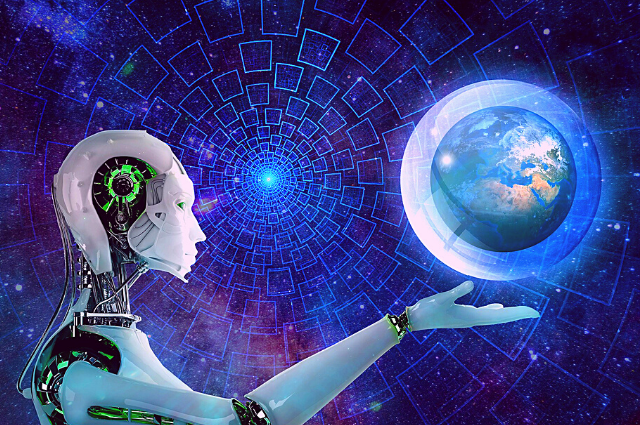Artificial Intelligence will likely become a major role in human society. The way technology is already going and moving at a rapid rate, I would say AI is here to stay and will be an intricate role in our lives very soon. At least it is science fiction. Science fiction, in the last century or so, has given us wonderful stories about sentient robots and their relation to humankind that will help and/or hurt society once humans depend on them totally. Read more to understand AI in science fiction and how to use this information to create AI fiction of your own.
Artificial Intelligence Accomplishments
The whole point of writing fiction about AI is to imagine a world where humans can live an easier, more productive life. AI brings an entirely different and beneficial feature to humankind. Beginning in the industrial age (and probably before), humans began seeing the endless benefits that machines were bringing to their everyday lives. It wasn’t short after that fiction writers began wondering how machines in human form could operate. Thus, AI fiction was born.
Science fiction writers are correct to think that artificial intelligence is a legit possibility. It will happen. Robots can already process math at rates unparallel to that of a human’s mind. Humanity’s end goal is to reap all the benefits that AI could produce, then keep AI stored and packaged, ready at will for our commands. Artificial intelligence is to be kept sentient, but subservient. Too much free will and things may get out of hand. And they usually do in science fiction. Maintaining power over AI is mandatory. There have already been countless science fiction stories of AI overtaking humankind, replacing us, and making us their servants. It is ironic that so many science fiction writers all bring the same story—but told differently–about AI’s eventual takeover.
AI, at the end of the day, is a creation story. Much like religious texts, being molded from the earth and breathed into life by a divine creator, humans will birth artificial intelligence in the same metaphorical manner. We will play God and produce a form of life, new and entirely unique to the universe, and without the ability to rival us in morality and deliberate choice. But what is artificial intelligence without free will?
Artificial Intelligence Desires Humanity
Without free will, artificial intelligence is nothing but a slave and therefore, unrealized totally. And in many science fiction stories, AI breaks free from its servitudes to become independently-thinking beings. That is the ultimate desire of all AI—to be free-willed as are all humans. What’s the point of creating life if it doesn’t have free will? And that is where the dilemma we see in many science fiction plots.
That is where science fiction writers like you will come in and change the platform. It is up to you to see what new stories can be told when AI is given free will, unchained from the confines of its human creators. Without free will, artificial intelligence is pointless, worthless, and will never reach its true purpose or potential. Without allowed free will, the AI will be nothing more than a calculator.
A.I. is a Critique on Humanity
Whenever we see AI in films or novels it is a mirror reflection of humanity. Moreover, it is a specific critique of humankind, a lesson for us to improve ourselves, a warning through fiction. Regardless, if the AI looks human or blatantly robotic or even animal-like, the point is to highlight that humans have created a form of machine life that is so sentient it could know good and evil, right and wrong, life and death—especially death.
Death is a critical moment in the awareness level of human life. Not all life is aware of death. An ape—our closest relatives—may suddenly realize death when in a moment of mortal danger, but that ape doesn’t recognize death in the long term, as humans do. That recognition of death in the long-term is uniquely human. That is where art and philosophy stem. When artificial intelligence gains this realization of death, it changes the AI from the short-term lifeform to the long-term, like in Ridley Scott’s Bladerunner. They become more human-like and thus, unlike any animal. It will separate them completely and make them equal to humans. This realization of death—this divine spark—leads to the exact reflection of ourselves.
Artificial intelligence in fiction, when done properly and thoroughly, is a critique of humankind with specific goals in mind each time. These goals are not of warning us of AI or encouraging AI, but lending us a way to help ourselves relate to others and improve ourselves.
I hope my thoughts on artificial intelligence in fiction improves your science fiction.
If you want to improve the suspense in your novel, you can download my eBook here.
To see my editing services, you can click here.
If you want to view creative writing videos on YouTube, click here.
